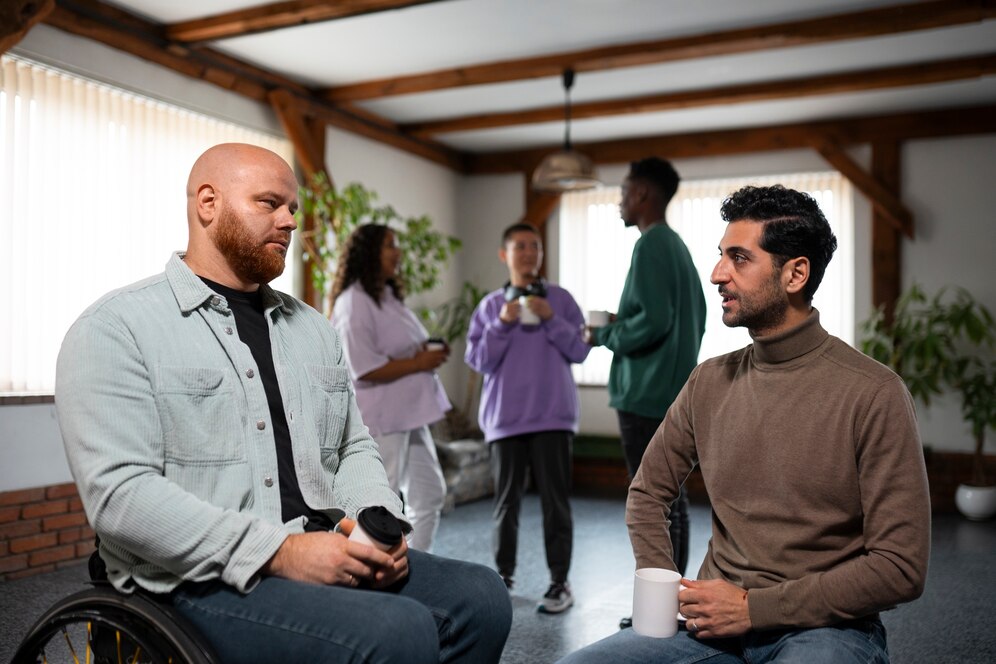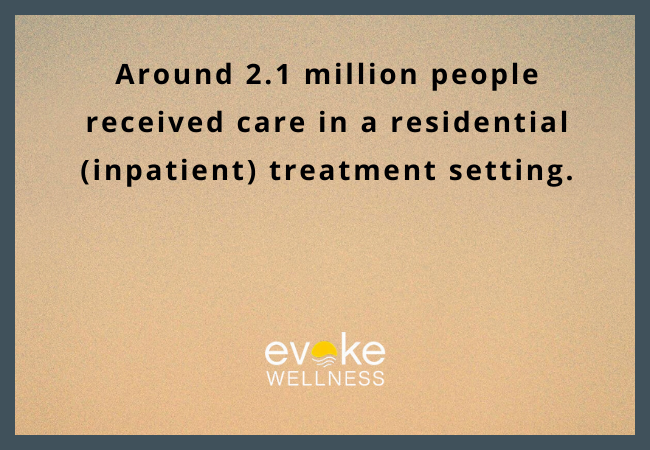Choosing to enter inpatient rehab is a life-changing step toward lasting recovery from addiction and mental health challenges. Still, many individuals hesitate to begin treatment simply because they don’t know what to expect. Understanding the structure, daily routines, and types of therapies involved in inpatient rehab can ease fears, build confidence, and help clients fully commit to the healing process.
At Evoke Wellness in Cohasset, MA, inpatient rehab is not just about abstaining from drugs or alcohol. It’s a deeply transformative process that encompasses medical care, emotional support, and personal growth. From the moment a client arrives, they are welcomed into a therapeutic environment designed to stabilize, strengthen, and prepare them for a lifetime of recovery.
This blog offers a complete overview of what typically happens each day in an inpatient rehab setting and how various therapies work together to promote healing.
Admission and Orientation: The First 24 Hours
Upon arrival at Evoke Wellness, each client is greeted by our compassionate admissions and clinical team. The intake process includes a detailed medical and psychological assessment to identify the most pressing physical and emotional needs. This evaluation becomes the foundation for the client’s individualized treatment plan.
Once the paperwork and initial assessments are completed, clients are shown to their rooms and given time to settle in. A tour of the facility follows, along with introductions to peers and staff members. While the first day is focused on orientation, many clients begin attending light group therapy or educational sessions within 24 hours.
The Structure of a Typical Day in Inpatient Rehab
Routine and structure are essential in the recovery process, especially in early sobriety. A consistent daily schedule helps create stability and minimize anxiety, while also providing a healthy rhythm that supports both physical and mental well-being.
Morning Routine
-
Wake-up and hygiene: Clients begin their day early with personal care routines to encourage responsibility and self-care.
-
Medication and vitals check: For those on prescribed medications or under medical monitoring, this step ensures stability.
-
Breakfast: A nutritious meal is served to start the day right.
-
Morning meditation or mindfulness practice: A group-led session focused on centering the mind and setting a calm tone for the day.
Midday Schedule
-
Group therapy sessions: Most mornings include one or two group therapy blocks focused on topics such as relapse prevention, emotional regulation, trauma, or coping skills.
-
Individual therapy: Clients may meet one-on-one with their assigned therapist for deeper work on personal issues, trauma, or underlying mental health concerns.
-
Lunch: Served mid-day, lunch is a chance to recharge, connect with peers, and enjoy balanced nutrition.
Afternoon Activities
-
Psychoeducation classes: These sessions teach clients about addiction as a disease, the brain’s role in substance use, the impact of co-occurring disorders, and healthy lifestyle habits.
-
Experiential therapies: Art therapy, music therapy, movement, or guided journaling may be included to help clients process emotions in creative ways.
-
Family therapy or calls: When appropriate, clients may participate in family sessions or scheduled contact with loved ones.
Evening Routine
-
Dinner: A healthy and comforting meal shared with peers.
-
Evening wrap-up groups: These sessions help clients reflect on the day, share insights, and build peer accountability.
-
Free time or leisure activities: Clients may have downtime to read, write, participate in light games, or take walks on facility grounds.
-
Lights out: A consistent bedtime routine supports rest, mental clarity, and physical healing.
Core Therapies in Inpatient Rehab
The heart of inpatient rehab lies in therapy—both group and individual. Multiple evidence-based therapies are used in combination to address the psychological, emotional, and behavioral components of addiction.
Individual Therapy
This one-on-one time with a licensed therapist allows clients to explore their past experiences, mental health history, and triggers for substance use. Individual therapy is tailored to each client and may include:
-
Cognitive-Behavioral Therapy (CBT)
-
Motivational Interviewing (MI)
-
Trauma-informed approaches
-
Mindfulness-based interventions
These sessions play a pivotal role in long-term recovery by helping clients understand the root causes of their behavior and build healthier thought patterns.
Group Therapy
In a supportive, professionally facilitated setting, clients share their struggles and victories with others who understand. Group therapy builds community, fosters accountability, and provides essential feedback. Common group topics include:
-
Emotional regulation
-
Relapse prevention
-
Communication skills
-
Self-esteem and identity
The Group Therapy Program in Massachusetts is a fundamental part of our daily programming and contributes immensely to peer bonding and long-term resilience.
Family Therapy
Addiction often strains family relationships, leading to hurt, mistrust, or codependency. Family therapy aims to repair those relationships by fostering communication, setting boundaries, and educating family members about addiction and recovery. When the family system begins to heal, it increases the chances of a successful recovery for the individual.
Medical and Psychiatric Care
Rehab isn’t only emotional and psychological work—there’s a medical side as well. Clients are monitored regularly for withdrawal symptoms, medication side effects, or complications related to chronic health conditions. Our psychiatric team also assesses and treats co-occurring mental health disorders like anxiety, depression, PTSD, or bipolar disorder.
This dual focus ensures that both mental and physical health are treated comprehensively, as they are deeply interconnected. The integration of medical and mental health care is a distinguishing factor of high-quality Mental Health Treatment Programs in Massachusetts.
Building Life Skills in Treatment
Beyond therapy, inpatient rehab also prepares clients for daily living post-treatment. Life skills training is a vital part of the recovery process and can include:
-
Financial literacy and budgeting
-
Nutrition and meal planning
-
Time management
-
Conflict resolution
-
Resume building and job-readiness workshops
These classes are especially beneficial for those who may have neglected self-care or daily responsibilities during active addiction.
Aftercare Planning: A Focus from Day One
One of the most important parts of inpatient rehab happens as treatment comes to a close. From the start, clinical teams work with clients to build a thorough aftercare plan that supports long-term recovery. This may include:
-
Stepping down to an outpatient or intensive outpatient program
-
Continued therapy or psychiatry appointments
-
Support group referrals (12-Step, SMART Recovery, etc.)
-
Sober living arrangements
-
Alumni programs
Our connection to Substance Abuse Treatment Programs in Massachusetts ensures that clients have access to a full continuum of care after inpatient rehab, helping them stay accountable and connected during the critical early months of recovery.
Why Choose Evoke Wellness?
Evoke Wellness stands apart because of our personalized, compassionate, and clinical approach to healing. We understand that no two individuals are alike, which is why we never take a one-size-fits-all approach to recovery. From the moment you arrive, our team is focused on helping you uncover your personal strengths and overcome the barriers that have held you back.
Our Intensive Inpatient Program in Cohasset, MA offers a safe, supportive environment where clients can focus completely on healing without the distractions and triggers of the outside world. Our clinicians, medical professionals, and peer support staff work closely with you to ensure that each day in treatment is purposeful, structured, and restorative.
We also understand the value of community. Clients at Evoke benefit from strong peer support, meaningful group connections, and access to integrated care across a wide network of Addiction Treatment Programs in Cohasset, MA. Whether you’re working through trauma, navigating a dual diagnosis, or simply seeking a new direction, we’re here to guide you every step of the way.
Conclusion
Inpatient rehab is a comprehensive, structured, and life-affirming experience that offers individuals a chance to break free from the cycle of addiction and begin building a healthier, more meaningful life. By combining intensive therapy, medical oversight, peer support, and skill-building, inpatient rehab helps clients regain control and prepare for lasting recovery.
If you or a loved one is considering inpatient treatment, knowing what to expect can bring peace of mind and encouragement. At Evoke Wellness, our team is ready to provide compassionate, evidence-based care that truly makes a difference. To speak with our admissions team and start your journey to healing, call us today at 866.931.6429.
Frequently Asked Questions (FAQs)
What is the goal of inpatient rehab?
The primary goal of inpatient rehab is to provide a safe, structured, and therapeutic environment for individuals to recover from substance use and mental health disorders. Clients receive medical care, individual and group therapy, and life skills training to help them build a solid foundation for long-term recovery.
How long do people usually stay in inpatient rehab?
The average stay for inpatient rehab ranges from 30 to 90 days, depending on the individual’s treatment needs, history of substance use, co-occurring conditions, and progress made in the program.
Will I have access to mental health treatment during inpatient rehab?
Yes. Evoke Wellness provides integrated care that addresses both addiction and co-occurring mental health disorders. Licensed therapists and psychiatric providers are part of your treatment team throughout your stay.
Can family members be involved in treatment?
Absolutely. Family involvement is encouraged and supported through structured family therapy sessions, education, and communication with the clinical team. Healing the family unit can be critical for long-term recovery.
What should I bring to inpatient rehab?
You should bring comfortable clothing, basic toiletries, prescribed medications (approved in advance), and any required documents. Personal electronics and other restricted items should be left at home or stored securely, based on program guidelines.
Is my stay in rehab confidential?
Yes. All treatment at Evoke Wellness is strictly confidential in accordance with HIPAA laws. Your privacy is protected, and no information will be shared without your consent.
What happens after inpatient rehab?
After completing inpatient rehab, clients often transition to outpatient treatment or intensive outpatient programs. Evoke Wellness offers comprehensive aftercare planning to ensure continued support, including therapy, alumni services, and referrals to local recovery resources.





